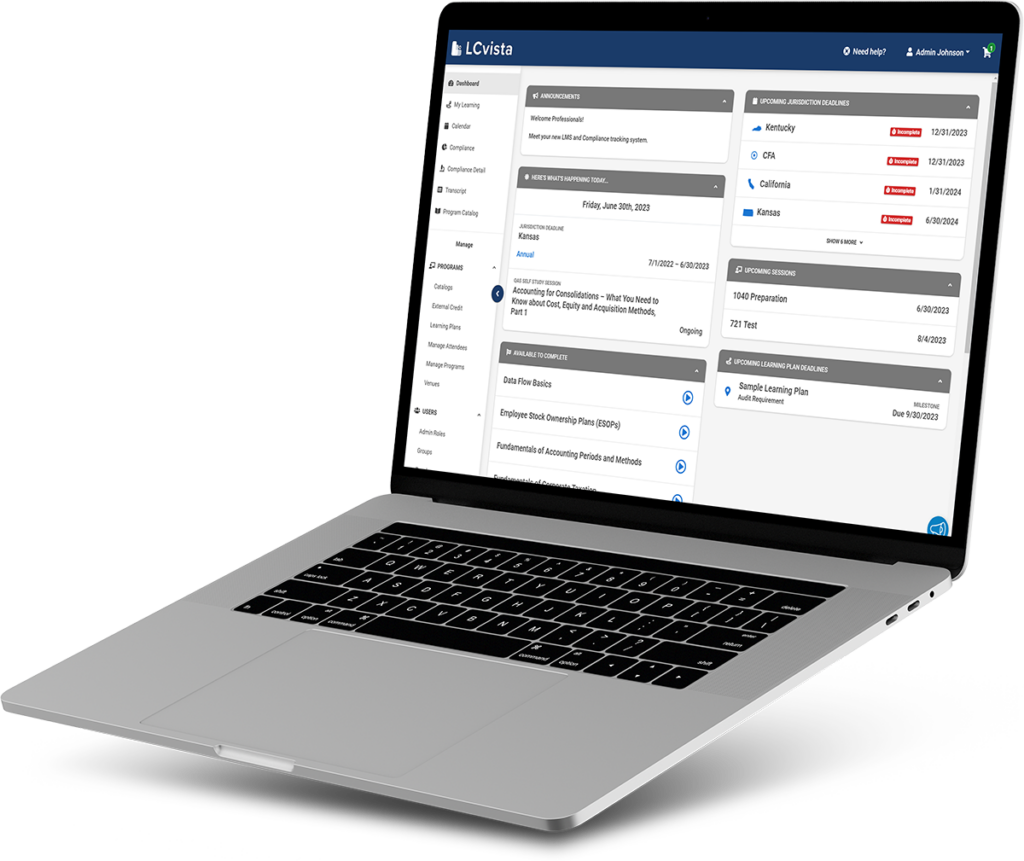Much as we may be trying to forget it, we all remember The Great Resignation. Between 2021 and 2023, quit rates in the US skyrocketed. And while many sectors suffered during this time, the accounting industry was hit especially hard.
According to the Wall Street Journal, more than 300,000 U.S. accountants and auditors left their jobs between 2020 to 2022, a decline of 17%. This far surpassed the overall quit rate during this time (which peaked around 3%), and while many industries have appeared to bounce back since The Great Resignation, the accounting industry still struggles with a talent problem today.
If The Great Resignation planted the seed that the accounting industry had a talent problem, recent studies have only confirmed it. A 2024 report on the evolution of mid-tier accountancy firms by the Institute of Chartered Accountants in England and Wales (ICAEW) validated many of these talent-related concerns. 52% of respondents across firms of all sizes cited talent shortages, and 70% listed talent-related issues as their highest concern, with an additional 18% listing it as one of their top two concerns.
Of course, losing a record amount of talent also has downstream effects, which firms are now feeling acutely. The most recent PCPS CPA Firm Top Issues Survey found that the second-largest issue for CPA firms with 11 or more professionals listed was retaining qualified staff. Similarly, small to midsize firms listed developing the next generation of firm leaders as a top five concern or higher. And accounting firms with six to 10 professionals recognized the aging of owners and partners as a top five concern.
The message is clear: accounting firms have a serious talent problem, and it’s time to fix it. But how?
What caused this crisis in the first place?
While the worst of the accounting industry exodus occurred during the Great Resignation, The Wall Street Journal reported that quit rates actually started increasing long before, in 2019. While the cause is complex, there are two prominent reasons why this trend continues.
Stagnant wages
Another article from the Wall Street Journal cites low entry wages as a main reason why people are leaving the industry (or deciding not to enter it altogether). This article included an analysis of salary data compiled by the Census Bureau, which showed that while “salaries have risen for young people in finance, marketing, logistics and consulting in recent years… the median, inflation-adjusted pay for young accountants has stagnated.”
For an industry that used to be known for its earning potential, this is a tough pill for young professionals to swallow, especially in an industry where they’re expected to “pay their dues” by completing repetitive work over long hours. It seems the only upside during those early years has been vanishing, and with that, so too is new talent.
Difficulty earning credit hours
The same WSJ article posited that earning enough credit hours has become a “significant barrier to entry” for new accounting graduates. Professionals are required to obtain 150 credit hours to earn a certified public accountant (CPA) license, which amounts to a staggering “30 college credits beyond the typical 120-hour bachelor’s degree requirement.”
For many aspiring accounting professionals, this requirement means having to complete an extra year of college, which is not only time-consuming, but expensive. While some accounting firms (like PwC) have teamed up local colleges in an agreement to pay the tuition for the students’ extra college credits while they work at the firm, this kind of arrangement is the exception rather than the rule.
Accountant burnout
Burnout is another significant driver of accountants leaving the field. In an industry that’s already known for long hours, the recent shift to more remote and hybrid work has only blurred the line between work and home more. For many, this leads to overworking, which is not sustainable.
Recent research conducted by the Association of Chartered Certified Accountants revealed that a staggering 88% of accounting professionals wish they had a better work-life balance. Looking at that number it’s no wonder enrollment in accounting programs is down. And because enrollment has declined, so too has the number of candidates sitting for the CPA exam (which dropped by 33% between 2016 and 2021, according to the AICPA 2021 Trends Report).
Low incentive for skill development
When there’s a lack of talent, there’s also a lack of skill, which is a bit of a chicken-and-egg dilemma. Either way, it’s evident that there’s a lower incentive than ever for young accountants to develop their skills.
A report by The Accountant stated that “traditional education models… contribute to the skills mismatch, as they may not adequately address the evolving demands of the industry, particularly in areas such as data analytics and automation.” This may lead to culture shock as young accountants enter the field, expecting one thing and having to adjust to another.
Of course, identifying a problem is the first step in solving it. So where do we go from here?
How the US’s top firms are tackling the talent problem
While no sweeping changes have been made, it’s encouraging to see that some top US accounting firms are implementing policies to address the talent shortage head on. Let’s look at a few examples.

They’re raising pay
Some accounting firms are raising pay for both new and existing employees. As this WSJ article reports, “While salaries vary by market and position, most entry-level workers across audit, tax and advisory services at KPMG in 2023 will earn salaries that are 5% to 15% higher than those who graduated and joined in 2022.” This is a major step in the right direction, and hopefully a blueprint that other firms will follow.
They’re subsidizing credit hours
To help solve the credit problem, WSJ reports that PwC has joined with Saint Peter’s University, based in Jersey City, N.J., so that some students can get the 30 extra college credits by working at the firm. The company is also paying for their interns’ tuition during that time, easing the financial burden that extra credit hours can impose.
They’re investing in learning
EY US has recently stated that they will invest $1 billion over three years in talent and technology for early-career accounting professionals and to attract more talent to accounting as a profession.
As Kevin Flynn, EY Americas vice chair of tax explained, “To be successful in a rapidly evolving landscape, professionals need to develop a diverse set of skills, including technological proficiency, and an understanding of the regulatory environment. Our focus on the intersection of technology and talent provides our people with opportunities for continuous learning, which ultimately benefits our clients.”
How learning development helps solve the talent problem
If your firm doesn’t have $1 billion to invest in talent, don’t fret. There’s growing evidence that learning development is a relatively cost-effective way for accounting firms to develop, foster, and keep talent. In other words, excellent learning development not only improves retention by engaging more professionals, it also improves talent density by providing quality learning that stokes skills development and specialization.
This ICAEW report makes a number of suggestions for how accounting firms can leverage learning development to retain talent, including making a concerted effort to develop qualified staff through training and education and building education around relevant regulation and legislation. The report goes on to stress “The importance of Continuing Professional Development (CPD) for qualified staff, with firms and individuals investing in lifelong learning to ensure staff remain technically competent to perform their roles.”
On a less technical level, some experts—like the ones who wrote this HBR article about boosting retention—believe that skills training is important because it’s a simple and direct way to show employees that you value them.
The article goes on to state that, “Workers are hungry for this vote of confidence,” and that “68% of workers around the world — blue- and white-collar alike — are willing to retrain and learn new skills.” Similarly, a report from the National Pipeline Advisory Group posits that over 67% of employees view career advancement paths and opportunities as one of the most attractive benefits in an employer.
The bottom line: learning boosts retention
Ultimately, many of the problems plaguing the accounting industry’s talent pipeline are systemic. Accounting firms can vow to increase pay or subsidize credit hours, but until these changes are required across the board, this will never be a cure-all solution.
Thankfully, any accounting firm can improve their learning development for new and existing hires. Not only is this a more cost-effective way to retain talent; it also benefits the industry as a whole. The more seriously firms take education and skills development, the more valued employees will feel, and the better equipped any firm will be to navigate the future with qualified talent.
Want to learn more about Learning Development for Accounting Professionals? Explore LCvista today.



